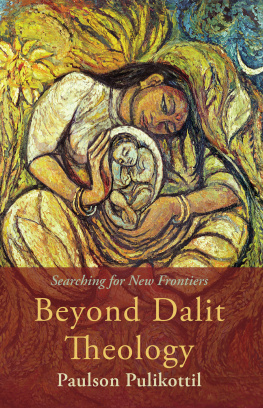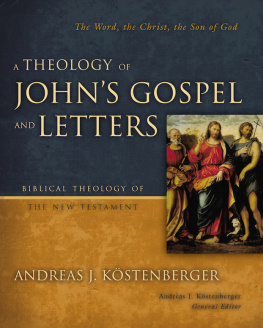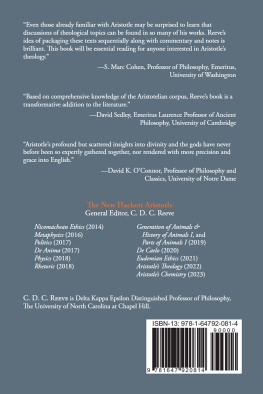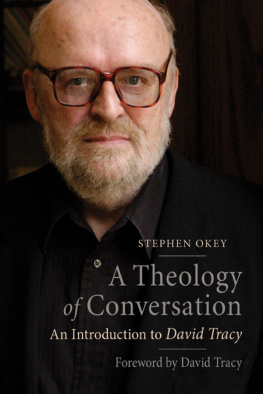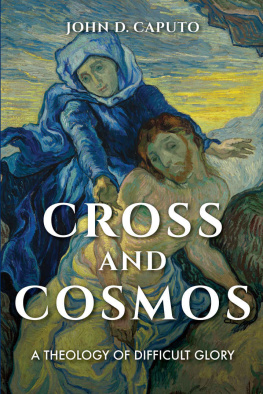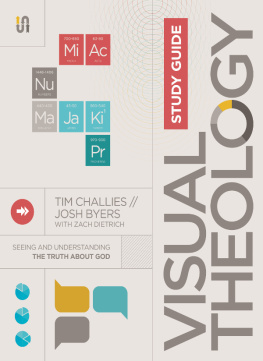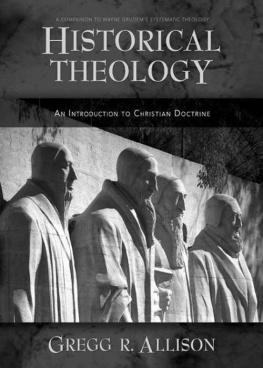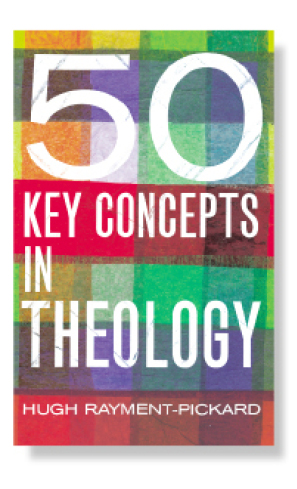Also by Hugh Rayment-Pickard
The Devils Account: Philip Pullman and Christianity
The Myths of Time: From Saint Augustine to American Beauty
First published in 2007 by
Darton, Longman and Todd Ltd
1 Spencer Court
140142 Wandsworth High Street
London SW18 4JJ
2007 Hugh Rayment-Pickard
The right of Hugh Rayment-Pickard to be identified as the author of this work has been asserted in accordance with the Copyright, Designs and Patents Act 1998.
A catalogue record for this book is available from the British Library.
Designed by Sandie Boccacci
Digital Edition converted and published by Andrews UK Ltd 2010
Dedication
for Rachel Carr
Preface
This book is intended to be both useful and interesting. Theology, like any other discipline, has its own jargon and insider knowledge. People often ask me questions like: Whats narrative theology? Or, What exactly is post-modern theology? I thought there was a place for a book that provided some digestible answers to these questions. And in order to make the entries more engaging, they contain comment and opinion as well as description.
Although there are only 50 main sections, each section contains many shorter references to thinkers, ideas and books. So the book as a whole has several hundred entries.
This book doesnt pretend to be comprehensive and it is best to think of it as a collection of short essays on some key topics in theology. The range of themes and thinkers is not exhaustive and inevitably follows my own interests. The choice of topics will certainly not please everyone, and to those readers I can only offer Dr Johnsons words as an advance apology: Dictionaries are like watches; the worst is better than none, and the best cannot be expected to go quite true.
I am grateful once again to Rachel Carr (the worlds greatest proof-reader) to whom this book is dedicated, for taking such meticulous care in commenting on the text.
Hugh Rayment-Pickard
Notting Hill, 2006
Atheism
The conviction that God does not exist.
In the ancient world the word atheist tended to be used to describe those who failed to believe in particular gods. Epicurus, Democritus and Lucretius were regarded as atheists because they challenged certain theistic ideas, but they did not reject all possibility of divine existence. It is not until the modern period that atheism becomes a distinctive and widespread philosophical position.
The history of modern atheism begins in the Enlightenment, with many different kinds of argument being launched against belief in God. David Hume, a Scottish philosopher, offered a rational critique, arguing that the world around us does not offer definite evidence of Gods existence. There were moral objections for example, from DHolbach to belief in a bloodthirsty God who punishes people by burning them eternally in hell. Ludwig Feuerbach offered a psychological argument for atheism, saying that God is only a projection of our inner human need for meaning. Nietzsche argued that belief in God is an illusion that inhibits the will to life. Karl Marx offered a political critique of theism, saying that belief in God is a drug (the opium of the people) that deadens our desire to fight for justice. Sigmund Freud argued that belief in God is a cultural projection of our need for a father figure to protect us from the hostile forces of nature.
The philosophical difficulty with atheism is that it is defined by what it is against rather than by what it believes. So it is no more possible to speak about the positive content of atheism than it is possible to speak about the positive content of not being English or not being a fish. There are also numerous possible conceptions of God, so a total atheist position would have to supply an exhaustive list of all the gods that are not believed in.
And there is a logical paradox at the heart of atheism: it requires the concept of God in order to define itself, so to some extent atheists give credence to the gods they are against precisely by pointing out their non-existence. If there were a campaign to show that the man on the moon doesnt exist, it would automatically give status to the counter-claim that the man on the moon is in fact alive and well. A perfect atheism would have to pass beyond disbelief to a complete indifference to the question of Gods existence.
Many atheists have not reached this point of equanimity and rail with an almost religious zeal against God for example, the Darwinian, Richard Dawkins. It is often said that atheism is just another faith and that there are no better grounds for atheism than theism. It is argued that atheism is just another religion, but a self-deceiving one, because it never admits its own dimension of faith that is, the faith that God does not exist.
The 2001 UK census recorded that 15.1 per cent of the population are non-religious. After 200 years of scientific and cultural critique of theism, this is a rather unimpressive statistic. The more remarkable fact is that so many people still believe in God (nearly 77 per cent according to the 2001 census) after so many decades of secular criticism and indifference.
THINKERS
Richard Dawkins (1941 ) argues passionately that belief in God is an irrational delusion and that religions are dangerous.
Democritus (460370 bc) argued that the universe is made up of material atoms and denied the existence of spiritual substances.
Epicurus (341270 bc) was a materialist who argued that the universe consists only of matter and the spaces between matter.
Ludwig Feuerbach (180472) argued in The Essence of Christianity (1841) that God is a human projection: The divine being is nothing else than the human being, or rather, human nature purified made objective, that is, contemplated and revered as another, a distinct being.
Sigmund Freud (18561939) wrote in Civilization and its Discontents (1930) that religion is so patently infantile, so foreign to reality, that to anyone with a friendly attitude to humanity it is painful to think that the majority of mortals will never be able to rise above this view of life.
James Froude (181894) offered a moral argument against a vengeful God: I would sooner perish for ever than stoop down before a Being who may have power to crush me, but whom my heart forbids me to reverence.
Baron DHolbach (172389) argued that the gods of religion were barbaric and that human beings were morally superior to God: The Jehovah of the Jews is a suspicious tyrant The pure mind of the Christians resolved, in order to appease his fury, to crucify his own son.
George Holyoake (18171906) was the last person in England to be criminally punished for atheism. He was jailed for six months in 1842. (See also Secularisation.)
David Hume (171176): although there is some debate about whether Hume was an atheist, he is normally taken for one, and he did criticise many aspects of theistic belief.
Lucretius (9955 bc) argued that belief in gods is not necessary or likely to bring about happiness: Fear holds dominion over mortality only because, seeing in land and sky so much the cause whereof no wise they know, men think divinities are working there.
Justyn Martyr (100165), in his First Apology, agreed with the Roman accusation that Christians were atheists: We do confess ourselves atheists before those whom you regard as gods, but not with respect to the Most True God.
Philip Pullman (1946 ) argues that belief in God diminishes human moral dignity and leads to oppressive religions.
Socrates (470399 bc), at his trial, was accused of not believing in any kind of god, and offered the defence that he believed in other gods.


